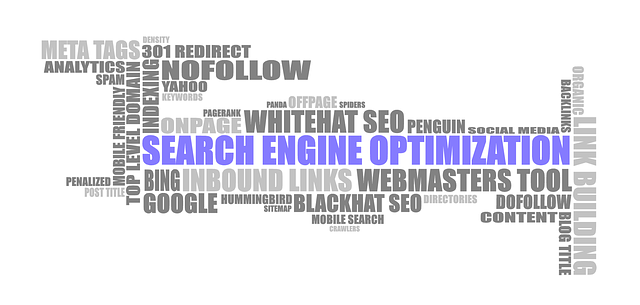Search intelligence platforms are transforming how businesses leverage data by going beyond basic keyword matching. These platforms use advanced algorithms to analyze user intent, contextual signals, and semantic relationships, providing precise and relevant search results. They offer actionable insights for identifying trends, uncovering patterns, and making informed, data-driven decisions. With the ability to process structured and unstructured data, these platforms provide significant competitive advantages, enhance operational efficiency, and foster innovation in today's data-rich landscape. Implementation requires seamless integration with existing systems and careful planning for unified data access, leading to improved SEO, enhanced user experience, and business growth. Future advancements in AI and ML will drive personalized experiences and optimize for emerging trends like voice search and IoT devices.
A search intelligence platform is transforming how businesses leverage online data, moving beyond simple searches to deliver advanced insights. This article delves into the multifaceted world of these platforms, exploring their role in unlocking valuable information from vast datasets. We’ll dissect essential components, highlight compelling benefits, and provide an implementation guide. Additionally, we’ll peek into future trends shaping this dynamic field, ensuring you’re equipped with the knowledge to harness the full potential of search intelligence platforms.
- Understanding Search Intelligence Platforms: Unlocking the Power of Data
- Core Components: Building Blocks for Effective Search Intelligence
- Benefits: Enhancing Business Strategies with Advanced Insights
- Implementation and Integration: Seamless Deployment for Maximum Impact
- Future Trends: Shaping the Evolution of Search Intelligence Platforms
Understanding Search Intelligence Platforms: Unlocking the Power of Data

Search intelligence platforms are transforming the way businesses leverage data. Unlike traditional search tools, these platforms go beyond basic keyword matching, employing advanced algorithms to analyze and interpret vast amounts of information. By understanding user intent, contextual signals, and semantic relationships, they deliver more precise and relevant results, enhancing the entire search experience.
These platforms unlock the true power of data by providing actionable insights. They enable organizations to identify trends, uncover hidden patterns, and make data-driven decisions with greater confidence. With their ability to process structured and unstructured data, search intelligence platforms become a valuable asset for gaining competitive advantages, improving operational efficiency, and fostering innovation in today’s data-rich environment.
Core Components: Building Blocks for Effective Search Intelligence

A robust search intelligence platform is composed of several key components that work together to deliver insightful and actionable data. At its core, these platforms rely on advanced algorithms capable of processing vast amounts of data from diverse sources. This includes web content, social media interactions, customer support tickets, and more, transforming raw information into structured insights.
Effective search intelligence is built upon these fundamental blocks: semantic analysis, entity recognition, and contextual understanding. Semantic analysis interprets the meaning behind queries and content, enabling the platform to grasp user intent. Entity recognition identifies key entities like people, places, or organizations mentioned in text, facilitating accurate categorization and linking. Contextual understanding ensures that insights are derived within the right framework, whether it’s industry-specific terminology or evolving trends, providing a comprehensive view of search patterns and behaviors.
Benefits: Enhancing Business Strategies with Advanced Insights

A search intelligence platform is a game-changer for businesses aiming to stay ahead in today’s competitive market. By leveraging advanced algorithms and natural language processing, these platforms transform raw data into actionable insights, enabling companies to make informed decisions with unparalleled accuracy. This technology doesn’t just provide a glimpse into market trends; it offers a comprehensive understanding of customer behavior, competitor strategies, and industry shifts, all in real-time.
With access to such profound knowledge, businesses can refine their business strategies, tailor marketing campaigns, and stay proactive rather than reactive. The ability to predict trends and anticipate customer needs gives companies an edge, fostering innovation and ensuring long-term success. Ultimately, a search intelligence platform is not just a tool but a strategic asset that empowers organizations to navigate the digital landscape with confidence and precision.
Implementation and Integration: Seamless Deployment for Maximum Impact

A robust search intelligence platform shouldn’t just be a standalone tool; it should integrate seamlessly into your existing workflows and systems for maximum impact. Successful implementation involves careful planning to ensure that data from various sources, including CRM, marketing automation, and e-commerce platforms, is harmonized and made accessible within the platform. This unified view allows for deeper insights and more precise targeting.
Seamless deployment means configuring roles and permissions, ensuring data security, and providing adequate training to users. By doing so, organizations can harness the full potential of their search intelligence platform, enabling data-driven decisions that enhance search engine optimization (SEO), improve user experience, and ultimately drive business growth.
Future Trends: Shaping the Evolution of Search Intelligence Platforms

The future of search intelligence platforms is brimming with potential, driven by advancements in artificial intelligence (AI) and machine learning (ML). As technology evolves, these platforms are expected to become more sophisticated, offering dynamic and personalized search experiences tailored to individual user needs. With AI-powered features like natural language processing and context awareness, search intelligence platforms will understand user intent better, providing relevant and accurate results even in complex queries.
Moreover, integration with Internet of Things (IoT) devices and the rise of voice search are set to transform how we interact with these platforms. Search intelligence platforms will need to adapt to these trends by optimizing for voice commands, ensuring seamless interactions across various devices. Additionally, as data becomes more abundant, these platforms must leverage advanced analytics techniques to uncover hidden insights, enabling businesses to stay ahead in the competitive market through data-driven decision-making processes.
A search intelligence platform is not just a tool; it’s a strategic asset that empowers businesses to navigate the vast sea of data with precision. By integrating advanced analytics and insights, these platforms revolutionize how companies understand customer behavior, optimize content, and make informed decisions. As we look ahead, the evolution of search intelligence promises even greater capabilities, enabling organizations to stay ahead in an increasingly digital landscape. Embracing these platforms is a game-changer for businesses seeking to unlock their full potential in today’s competitive market.
